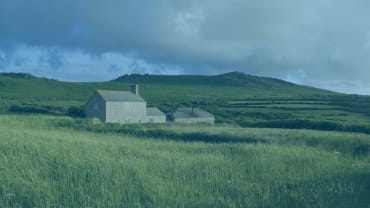Vicarious liability for wildlife crime is not new – it has been possible since January 2012 to receive a criminal conviction for offences against birds of prey that you didn’t personally commit. However recent developments indicate that prosecution for the actions of others is becoming more likely than ever before.
The story so far
Vicarious liability simply means liability for the actions of others. It is familiar and well understood in relation to civil claims, for example where an employer can be sued for the actions of a negligent employee, but it is very unusual in relation to criminal liability.
In the context of wildlife crimes, vicarious liability was introduced by the Wildlife and Natural Environment (Scotland) Act 2011. The Act states that, a person who has or who manages bird rights over land can be responsible for certain offences against birds of prey which are committed by someone else on that land.
When the 2011 Act was passed it was noted that crimes against birds of prey were a significant concern and that the industry had failed to reduce the incidence of the offences by self-regulation. Introducing vicarious liability to those in charge was viewed as a way of increasing the likelihood that something substantive would be done to prevent these crimes at an organisational level.
Unlike the employer who is sued for damages, there is a defence available to someone prosecuted for a vicarious liability offence under the 2011 Act. Liability can be avoided if the accused can demonstrate that they did not know that the offense was being committed; and took all reasonable steps and exercised all due diligence to prevent the offense being committed.
New legislation – expansion of vicarious liability
This summer the Animals and Wildlife (Penalties Protections and Powers) (Scotland) Act 2020 was passed by the Scottish Parliament.
The Act was not designed to introduce new wildlife offences but rather to increase the penalties for those which already exist. However, during the Bill’s passage through the Scottish Parliament, an amendment was accepted which will impose vicarious liability for offences in terms of section 11 of the Wildlife and Countryside Act 1981 – broadly those relating to the trapping and snaring of animals. This is a little inconsistent because it remains only those who hold or manage bird rights over land who can be liable and clearly section 11 offences are not limited to the exercise of bird rights.
The restricted scope arises from the fact that the extension of liability was not the main aim of the legislation and was not something discussed during the consultation on the Bill. For that reason the Scottish Government was not willing to extend the range of people who could be vicariously liable for the actions of others.
What's Next?
This small extension of vicarious liability is perhaps only the tip of the iceberg. When the Act was being debated by MSPs, it was clear that wildlife crime was considered a significant problem. There was cross party agreement that more should be done to combat this illegal activity and vicarious liability was accepted as a potent tool to achieve that aim. On this occasion, the ability to extend vicarious liability further was hampered by the fact that the 2020 Act was not the appropriate piece of legislation, but there may be a future Act which is specifically directed at extending vicarious liability.
In any event, the 2020 Act underscores both the significance of these crimes and the desire to increase the sanctions for those who commit them. This alone is likely to provide renewed impetus to prosecute in relation to the existing offences.
The ongoing commitment to driving down wildlife crime is apparent elsewhere too. In 2013 Police Scotland set up a new structure for its wildlife crime unit with each division having a wildlife crime liaison officer and in January this year it launched a new wildlife crime investigator’s course. The specialist Police resource is allied with a dedicated unit of prosecutors at the Crown Office Procurator Fiscal Service.
Accordingly, the focus on wildlife crime, and the recognition of vicarious liability as powerful means of reducing it, means that although there may not have been many convictions for vicarious liability since the 2011 Act came into force, it seems likely that we will see the rate of such convictions increase.
This article originally appeared in the Press and Journal.
Contributor
Legal Director












